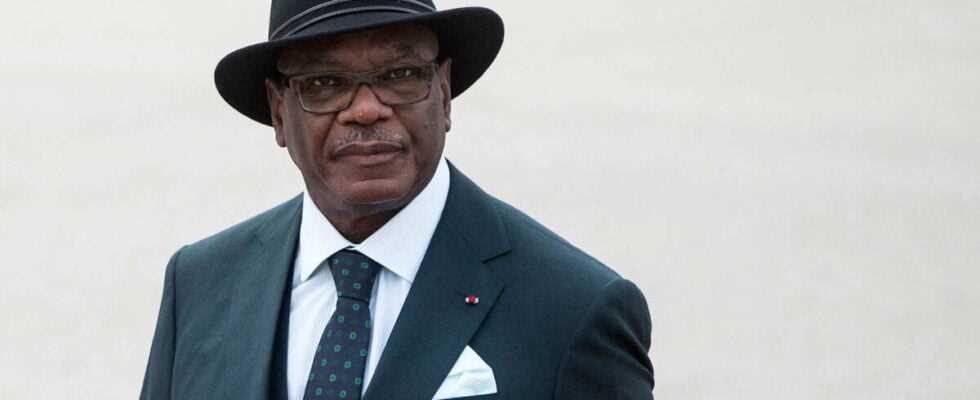The former strongman of Mali had ruled the country from 2013 to 2020. Valuable partner of France in its war in the Sahel, he had been overthrown by a military coup in August 2020.
His election in 2013 at the Koulouba Palace, the seat of the Malian presidency in Bamako, brought with it its share of hopes and expectations. The challenges that Ibrahim Boubacar Keïta, “IBK”, would have to face were daunting. Overthrown by a coup in August 2020, Keïta had nevertheless had to resign himself to handing over, while the street demanded his departure. “I do not want any blood to be shed to keep me in business”, he said in a speech.
Ibrahim Boubacar Keïta died on Sunday, at the age of 76, according to his family. “President IBK died this morning at 9 a.m. at his home” in Bamako, she told Agence France-Presse. For the moment, the cause of his death has not been specified.
Ally of Paris
After a meteoric political rise under Alpha Oumar Konaré, the first president (1992-2002) of Mali’s democratic era, IBK was appointed Prime Minister from 1994 to 2000. Defeated in the 2002 presidential election, against the ex-general Amadou Toumani Touré, IBK had taken his revenge by becoming president in 2013. He will be re-elected in 2018 against Soumaïla Cissé, then leader of the opposition and who died in December 2020 of Covid-19.
During his mandate, Ibrahim Boubacar Keïta had to face the Tuareg rebellion in the north of the country which, since 2012, has weakened the central power. This destabilization of the region has been increased by the appearance of jihadist groups, some affiliated with Al-Qaeda, which at the end of 2012 strengthened their hold on the major cities in the north of the country.
It was at this time that Ibrahim Boubacar Keïta had asked for help from France. In January 2013, former President François Hollande launched Operation Serval to chase Islamists from the north of the country. Over the years, IBK had become a valuable ally of Paris in its war in Mali, extended to the summer of 2014 in the Sahel (Operation Barkhane).
Economic sanctions
With the coup d’etat by the Malian military junta in August 2020, France lost a partner of choice. In Mali, the IBK regime was out of breath, cornered by criticism from the population denouncing the decline of the Malian state.
Mali, further weakened by a second coup in May 2021, has since been under economic sanctions from the Economic Community of West African States (ECOWAS). These retaliatory measures, supported by Europe and the United States, aim to punish the military currently in power, who plan to govern the country for several years, without organizing elections allowing the return of civilians to the head of the country. .
